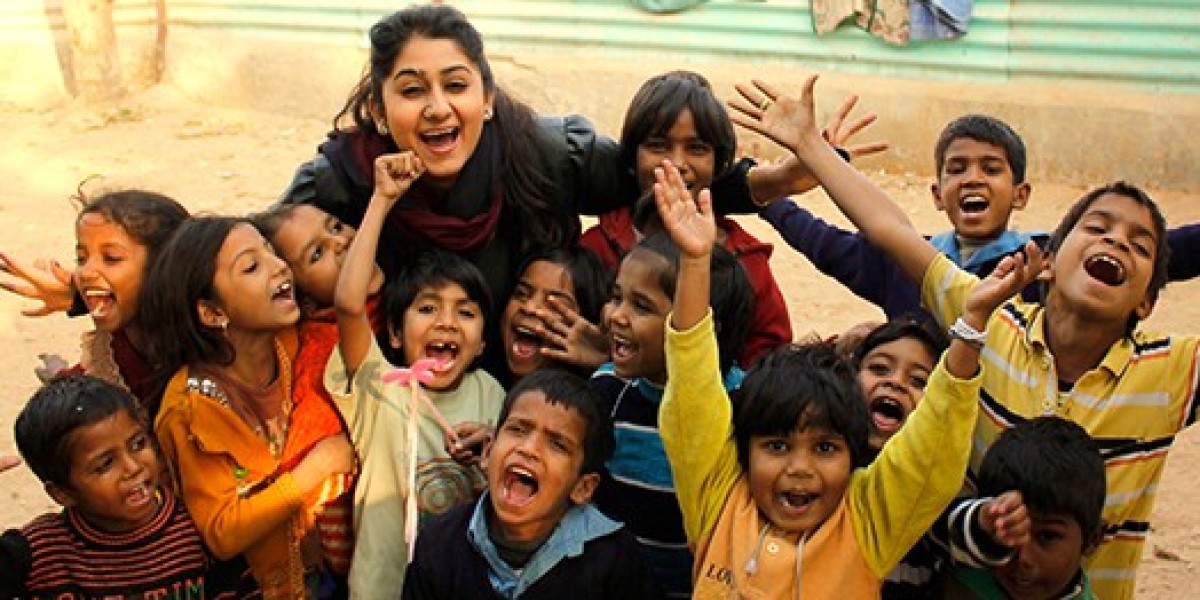Children empowerment in Pakistan is not just a goal—it is a national necessity. With over 40% of the population under the age of 18, the wellbeing of children directly impacts the country's future. Empowerment means enabling children to realize their full potential, and one of the most overlooked yet crucial aspects of this empowerment is preventive healthcare.
From rural villages to urban slums, millions of children in Pakistan face health challenges due to malnutrition, lack of access to clean water, poor hygiene, and limited medical facilities. Addressing these challenges through preventive healthcare strategies is a powerful way to equip children with the strength and stability needed to thrive academically, emotionally, and socially.
As a leading organization dedicated to child welfare, SOS Children’s Villages Pakistan believes that preventive healthcare is an essential pillar of children empowerment. This blog explores how healthcare initiatives, education, awareness, and community participation can reshape the lives of children across Pakistan.
The Pakistani Healthcare Landscape
Pakistan faces numerous health challenges:
- High infant and child mortality rates
- Widespread malnutrition and stunted growth
- Low vaccination coverage in remote areas
- Insufficient awareness about hygiene and nutrition
While curative care is vital, preventive healthcare is more cost-effective and scalable, especially in a country with limited medical infrastructure.
The Link Between Preventive Healthcare and Children Empowerment
Health as the Foundation of Empowerment
Empowering children starts with ensuring their basic rights—including the right to health. A healthy child is more likely to:
- Attend school regularly
- Engage actively in learning
- Develop better cognitive and emotional abilities
- Participate confidently in social environments
Poor health, on the other hand, leads to absenteeism, learning difficulties, and even school dropouts, further perpetuating the cycle of poverty.
Breaking Intergenerational Cycles
Preventive healthcare not only benefits current generations but also impacts future ones. Educated children grow into knowledgeable parents who make better health decisions for their own children. Thus, investing in today’s youth builds a healthier society tomorrow.
Major Preventive Healthcare Challenges in Pakistan
1. Lack of Awareness
A large portion of the population, especially in rural areas, remains unaware of basic health practices. Parents may not know:
- The importance of routine immunizations
- How to maintain proper hygiene
- The nutritional needs of children
2. Cultural Barriers
In certain regions, traditional beliefs or mistrust of medical services hinder the acceptance of vaccines or modern medical advice.
3. Limited Access to Services
Many communities do not have access to pediatric care, clean water, or proper sanitation. Even when healthcare services exist, they are often understaffed or poorly equipped.
4. Gender Disparity
Girls in Pakistan often receive less medical attention than boys, a practice rooted in cultural norms. This unequal treatment endangers the health and futures of millions of girls.
Role of SOS Children's Villages Pakistan
As a pioneer in child welfare, SOS Children’s Villages Pakistan has long recognized the vital role of preventive healthcare in empowering children.
A Holistic Approach
Our programs integrate healthcare with education, psychological support, and family care. We provide:
- Regular medical check-ups at SOS facilities
- Vaccination drives in vulnerable communities
- Nutrition and hygiene workshops for families and caregivers
- School-based health education for children
Community Outreach
Through mobile clinics and awareness campaigns, we reach underprivileged communities who otherwise have no access to healthcare. Our trained health workers visit villages, conduct awareness sessions, and distribute health kits.
Empowering Caregivers
Empowering mothers and guardians with knowledge is essential. SOS runs parenting programs that focus on child nutrition, disease prevention, and safe practices at home.
Psychological Wellbeing
Health is not just physical. SOS emphasizes mental health awareness, offering counseling services to children affected by trauma, neglect, or family loss.
. He’s now a healthy, active child who enjoys sports and learning.
National and International Collaboration
SOS Children’s Villages Pakistan works hand-in-hand with local health departments, schools, and international NGOs to scale up preventive healthcare. These collaborations help to:
- Train healthcare professionals
- Improve vaccine distribution
- Ensure consistent monitoring and evaluation
With more coordinated action, the reach of preventive healthcare can grow exponentially.
Strategies to Promote Preventive Healthcare for Child Empowerment
1. Health Education in Schools
Integrating health education in school curricula can empower children to adopt lifelong healthy habits. Topics can include:
- Nutrition basics
- Handwashing and hygiene
- Importance of vaccinations
- Identifying symptoms early
2. Training Community Health Workers
Training local women and youth to serve as health ambassadors can bridge the gap between communities and healthcare providers.
3. Leveraging Technology
Mobile apps and SMS-based campaigns can disseminate health tips, vaccination reminders, and nutritional advice, even in remote areas.
4. Public-Private Partnerships
Collaboration between NGOs, the government, and private sector can bring better funding, infrastructure, and innovation to preventive health projects.
5. Gender-Inclusive Policies
Ensure equal access to health services for girls by launching gender-sensitive campaigns and school programs.
Conclusion
Children empowerment in Pakistan cannot be realized without first ensuring their health and wellbeing. Preventive healthcare is not just a service—it’s a strategy for life-long growth, education, and opportunity. It lays the foundation for children to pursue their dreams without being hindered by avoidable illnesses.








